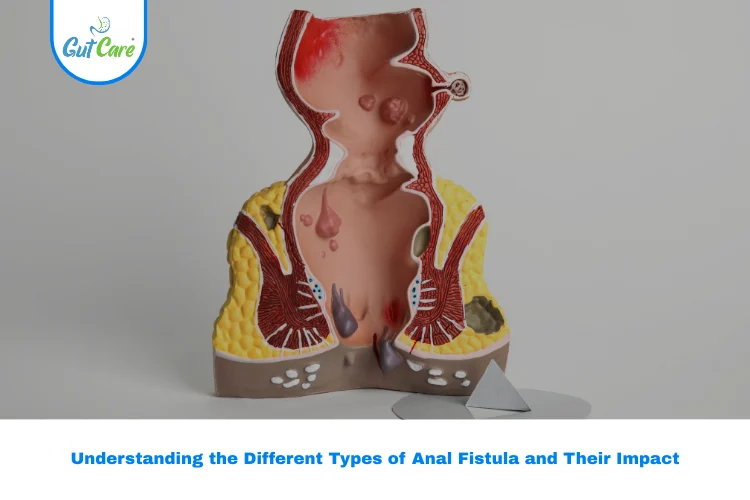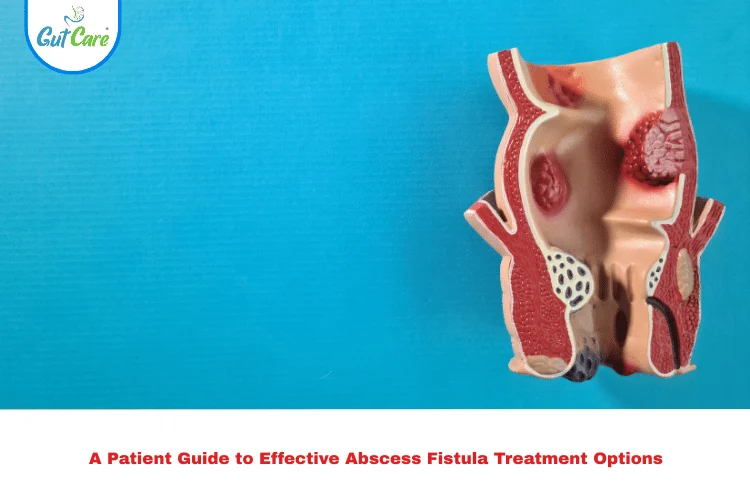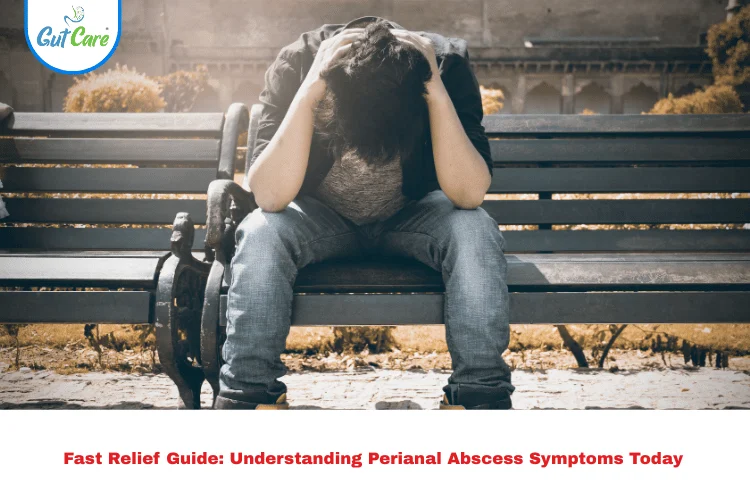When it comes to anorectal health, few conditions are as uncomfortable and persistent as anal fistulas. There are several types of fistula, and each varies in its severity, symptoms, and treatment options. At Gutcare Clinics Bangalore, experienced specialists like Dr. Yuvrajsingh Gehlot, a leading colorectal surgeon, help patients understand the fistula definition, identify the reason for fistula, and find the most effective treatment plan.
Knowing the types of fistula is essential for proper diagnosis and recovery. In this guide, we’ll explain what a fistula is, its causes, symptoms, and how different types affect patients differently.
What Is a Fistula?
A fistula is an abnormal connection or tunnel that forms between two body structures. In the case of an anal fistula, this tunnel usually connects the anal canal to the skin near the anus. According to the fistula definition, it often develops after an infection in the anal glands that causes an abscess. When the abscess does not heal properly, it may lead to a fistula.
The Different Types of Fistula
There are four primary types of fistula categorized based on their pathway and complexity.
1. Intersphincteric Fistula
This is the most common type. The tunnel runs between the internal and external anal sphincter muscles. It causes localized pain and discharge, often manageable with minor surgical intervention.
2. Transsphincteric Fistula
This type passes through the external anal sphincter, extending into the ischiorectal fossa (a fat-filled space near the rectum). It may create multiple openings on the skin surface and is usually more painful.
3. Suprasphincteric Fistula
Here, the tract extends above the sphincter muscles and curves downward to open near the anus. Because of its deeper location, it is harder to diagnose and often requires surgical expertise from a colorectal surgeon.
4. Extrasphincteric Fistula
This is the rarest and most complex type, where the tract starts higher up in the rectum and bypasses the sphincter muscles entirely. It is usually associated with conditions like Crohn’s disease or severe trauma.
Each of these types of fistula requires different treatment strategies, making professional evaluation essential.
The Impact of Different Types of Fistula
Living with any of the types of fistula can be physically painful and emotionally draining. Key impacts include:
- Chronic discomfort, especially while sitting or passing stool
- Risk of repeated infections or abscesses
- Psychological distress due to embarrassment or persistent symptoms
- Reduced quality of life if untreated
Prompt medical care can prevent these impacts from worsening.
Common Causes of Fistula
Understanding the fistula causes helps in preventing recurrence. Some of the common reasons for this fistula disease include:
- Infections in anal glands
- Chronic constipation or diarrhea causing irritation
- Inflammatory bowel disease (IBD) like Crohn’s disease
- Previous anal surgery leading to complications
- Trauma or injury in the anal region
Identifying the reason for fistula can guide both prevention and treatment.
Recognizing Fistula Symptoms
The fistula symptoms may differ depending on the type and severity. Common signs include:
- Persistent anal pain and discomfort
- Swelling or redness around the anus
- Pus or blood discharge from the anal opening
- Irritation or pain while sitting
- Fever or fatigue in case of severe infection
If these symptoms are ignored, the fistula disease can become chronic and more complicated.
Treatment Options for Fistula
Treatment depends on the types of fistula and severity. Common approaches include:
- Medication: Antibiotics to control infection and reduce inflammation
- Sitz baths: Warm water baths to relieve discomfort
- Surgery: Options such as fistulotomy, seton placement, or advanced flap procedures depending on complexity
- Lifestyle changes: High-fiber diet, hydration, and maintaining good anal hygiene
At Gutcare Clinics Bangalore, Dr. Yuvrajsingh Gehlot provides tailored treatment plans, ensuring effective healing and reduced recurrence.
When to Consult a Doctor
If you notice persistent fistula symptoms like pain, discharge, or swelling, it’s important not to delay medical help. Consulting a colorectal surgeon early ensures proper diagnosis and treatment. Ignoring the condition may turn a simple fistula into a more complex type.
Prevention Tips
While not all cases can be prevented, adopting healthy habits reduces the risk of developing fistula disease:
- Eat a fiber-rich diet to avoid constipation
- Stay hydrated
- Maintain proper anal hygiene
- Treat infections promptly
- Get regular medical check-ups if you have IBD
Conclusion
The different types of fistula intersphincteric, transsphincteric, suprasphincteric, and extrasphincteric vary in complexity and impact. Recognizing fistula symptoms and understanding fistula causes are crucial for timely treatment. While home care helps manage discomfort, expert evaluation is essential. At Gutcare Clinics Bangalore, Dr. Yuvrajsingh Gehlot, an experienced colorectal surgeon, provides advanced care and tailored treatments to ensure better outcomes.
If you suspect you may have a fistula, don’t delay early diagnosis and treatment can restore comfort and improve your quality of life.
FAQs
1. What are the main types of fistula?
The four common types of fistula are intersphincteric, transsphincteric, suprasphincteric, and extrasphincteric.
2. What is the most common reason for fistula?
The main reason for fistula is an untreated anal gland infection that develops into an abscess and forms a tract.
3. What are common fistula symptoms?
Typical fistula symptoms include anal pain, pus or blood discharge, swelling, and irritation while sitting.
4. Can fistula disease be cured without surgery?
While medication and home care may provide temporary relief, complex fistula disease usually requires surgery for permanent cure.
5. Does Gutcare Clinics Bangalore treat different types of fistula?
Yes, Gutcare Clinics Bangalore, led by Dr. Yuvrajsingh Gehlot, offers advanced treatment for all types of fistula using modern techniques.




